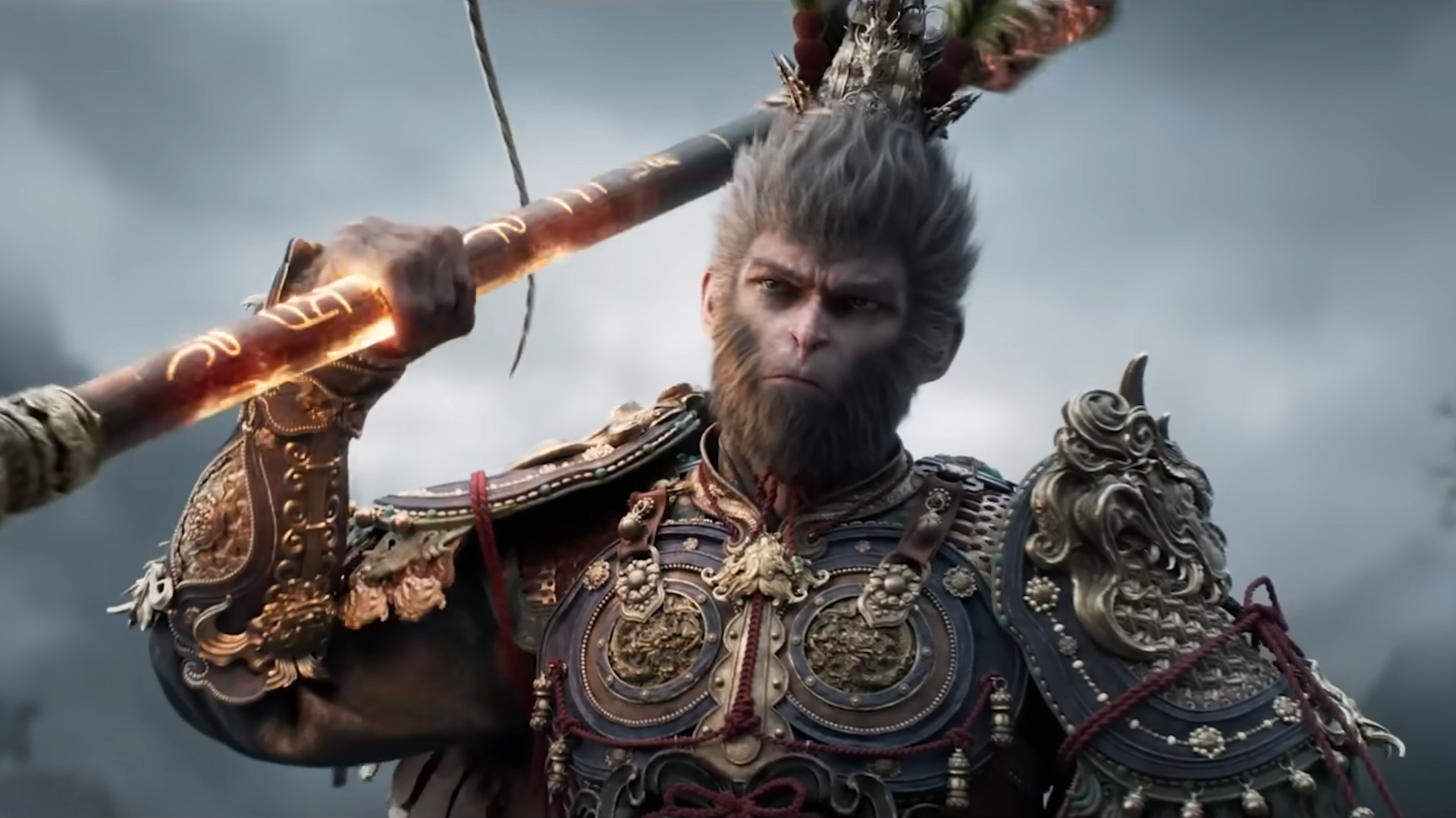
Black Myth: Wukong won a couple trophies at The Game Awards last week, including Best Action Game and the fan-voted Players Voice. But it did not win the big prize—Game of the Year—and Feng Ji, the CEO of developer Game Science, seems more bummed about the whole thing that you might expect.
Ji expressed his disappointment about losing out on the crown in a message posted on Chinese social media platform Weibo, and it’s important to note right off the top that we’re relying on machine translation here. The ability of ChatGPT, Google Translate, and DeepL (I ran it through them all, just to be sure) to turn non-English text into something I can read is undeniable, but it’s not great for nuance: Humour, sarcasm, and other linguistic parlor tricks don’t always carry well even when everyone’s speaking the same language, and that detection difficulty is exacerbated by the need to rely on the machine to lay it all out.
That said, Ji is clearly disappointed that Black Myth: Wukong didn’t win Game of the Year. The Best Action Game and Players Voice wins were “gratifying,” he wrote (ChatGPT translated, via Reddit). “Yet, I must admit, there’s a sense of loss and regret. More than anything, though, there’s a letting go of illusions. The games nominated this year were all exceptional, but honestly, I still can’t figure out what the criteria were for Game of the Year. I feel like I came all the way here for nothing!”
Ji also acknowledged “a lot of strong dissatisfaction and frustration” from players over not winning the award, which he said were “often expressed humorously or ironically, which made me laugh.”
“I completely understand these feelings and share the frustration, because behind these emotions lies not pain or malice, but dignity and confidence,” he wrote. “When you’re so confident and yet don’t receive the recognition you expected, it’s natural to feel upset.”
He’s completely right—if you’re eligible for an award and you really think you should win it, and you really want to win it, and then you don’t, that sucks. The dev team apparently took the loss pretty hard: Game writer Alanah Pearce (via Kotaku), who was seated near the Black Myth: Wukong team at The Game Awards, said one of them was actually crying when Astro Bot won Game of the Year.
That seems a bit much to me, but I also haven’t spent years pouring heart and soul into a game project that was on the cusp of being declared the best of the year. That has to be an emotional moment, and some people react to that sort of gut-punch differently than others. And that’s without taking the cultural divide into account—such a distinctly Chinese game taking top honors at the foremost awards show in the West would absolutely be a very big deal.
Ji and the rest of the Black Myth: Wukong team weren’t the only ones disappointed. Black Myth: Wukong saw a surge of positive user reviews on Steam in the days immediately after The Game Awards, many of them declaring it the “real” Game of the Year. There was also a mini review bombing of Baldur’s Gate 3 on Steam in the wake of The Game Awards led by Chinese gamers, seemingly driven by two primary factors: A potential mistranslation of Larian boss Swen Vincke’s spicy Game Awards speech (Vincke handed out the Game of the Year award), and the fact that Astro Bot, a PlayStation 5 exclusive, isn’t available on Steam, so aggrieved Black Myth: Wukong fans chose the next-best target.
Ji said he was so confident in Black Myth: Wukong that he wrote his Game of the Year acceptance speech two years ago, which to me smacks of self-deprecating humor more than anything else—and that’s the kind of thing that really doesn’t translate well in written text, even when the word-for-word translation is accurate. I get the same impression from the “I came all the way here for nothing!” bit: Maybe he’s serious and probably he’s venting a bit, but most of all it gives me an “all I got was this lousy t-shirt!” vibe.
Which is why, to my reading, Ji’s statement overall is a fairly benign expression of disappointment in the loss, coupled with confidence in what it means for the Chinese videogame industry—very standard “my heart will go on” kind of stuff.
“This was no fluke,” he wrote. “It’s the inevitable outcome of Chinese culture, Chinese talent, China’s business environment, China’s gaming industry, and gamers worldwide coming together.
“Game Science is fortunate to have participated in and witnessed the beginning of this tide. I believe many more peers will, in the future, bring higher-quality, more engaging, and more confident Chinese stories to the world.”
He’s probably right about that, too.
Source link










Add comment